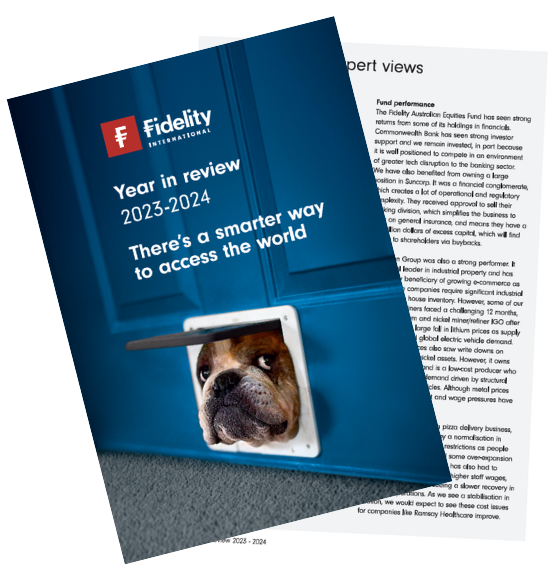Over the past 12 months, the Australian government has intensified its efforts to decarbonise our economy to not only meet commitments made under the Paris Agreement, but importantly to help safeguard our future export market.
Last year, more than 45%1 of Australia’s exports were high carbon products - iron ore, coal and natural gas. Notably, these exports were to countries stepping up their efforts to decarbonise their economies, including China, Japan and Korea.
To this end, the Government has introduced a myriad of initiatives which form a comprehensive framework for positioning Australia to strengthen its economy:
- Critical Minerals Strategy 2023 - 2030 - highlights the importance of securing and developing minerals vital for clean energy technologies, with an aim to position Australia as a key supplier in the global market.
- Sector Pathways Review - which aims to provide tailored decarbonisation roadmaps for various industries, ensuring a cohesive transition across the economy.
- The Sustainable Finance Strategy - focuses on aligning financial systems with sustainable development and promoting investments that support environmental and social goals. This includes financing the development of the Australian Sustainable Finance Taxonomy.
- Australian Safeguard Mechanism: Aims to reduce emissions in the largest industrial facilities.
- Future Made in Australia - recently announced, this policy emphasises local manufacturing and innovation in clean energy technologies, aiming to build a resilient and sustainable domestic industry while reducing carbon emissions.
These initiatives also have implications for investors at Fidelity in a few ways.
Firstly, we are analysing how these policies are likely to impact the companies in which we invest, which companies will be winners or losers of these policies, and how they will adopt or interact with these policies. This analysis helps inform how we invest.
Secondly, as long-term investors, we engage with companies in high emitting sectors particularly iron ore, coal and natural gas, to understand how Boards and management are positioning their businesses to remain resilient over the medium and long-term, while meeting short term regulatory obligations such as the Safeguard Mechanism.
An example of this is our discussions with large Australian iron ore miners. We seek to understand how they are future proofing their business models as customers look for green steel alternatives. Similarly, we engage with oil and gas companies, focusing on ensuring that they have the appropriate board skills to navigate the complexities of the sector’s future and robust governance structures to guide their climate transition plans.
Finally, as sovereign bond investors, we contribute to PRI’s Collaborative Sovereign Engagement on Climate Change with the Australian government. Here, we seek to understand the government’s management of climate change risk and encourage federal and state-level governments to prepare for the impacts of physical and transition risks on the Australian economy.
Focus on ‘culture-based financial risks’
Last year we completed research to understand the multiple levels in which workplace misconduct can represent financial risks for investors. Harmful behaviours in the workplace such as abuse, bullying, sexual harassment, discrimination, and victimisation are well understood to translate into company-level financial impacts.
What is less understood is the financial implication of these behaviours to a broader portfolio, as they extend past the individual company. This research explored how harmful behaviours can lead to ‘culture-based financial risks’ that are interrelated and can lead to vicious cycles across sectors and the economy.
Our paper, which summarised this research, ‘Workplace misconduct | The underestimated systemic implication for investors’, included recommendations for actions and disclosures companies should undertake to help with the assessment of these risks.
We’ve applied our learnings to impact how we engage with companies to understand their management of these risks, and to assess any appropriate remediation in practice.
In conclusion
Overall, our approach to sustainable investing and culture-based financial risks seeks to develop decision-useful research to understand how societal trends and government policies interact with our investments and use those insights to engage with companies to ensure they remain resilient over the long-term.
Source: 1. DFAT, Australia’s Top 25 Exports, Goods and Services (a) Australia’s top 25 exports, goods and services 2023 (dfat.gov.au)
Or explore our other areas of focus here:
- Foreword - Lawrence Handon, Managing Director
- Australian equities - Paul Taylor, Head of Investments, Australia and Portfolio Manager, Fidelity Australian Equities Fund
- Global equities - James Abela and Maroun Younes, Co-Portfolio Managers, Fidelity Global Future Leaders strategies
- Asian equities - Anthony Srom, Portfolio Manager, Fidelity Asia strategies
- Global emerging markets - Amit Goel, Portfolio Manager, Fidelity Global Emerging Markets strategies

